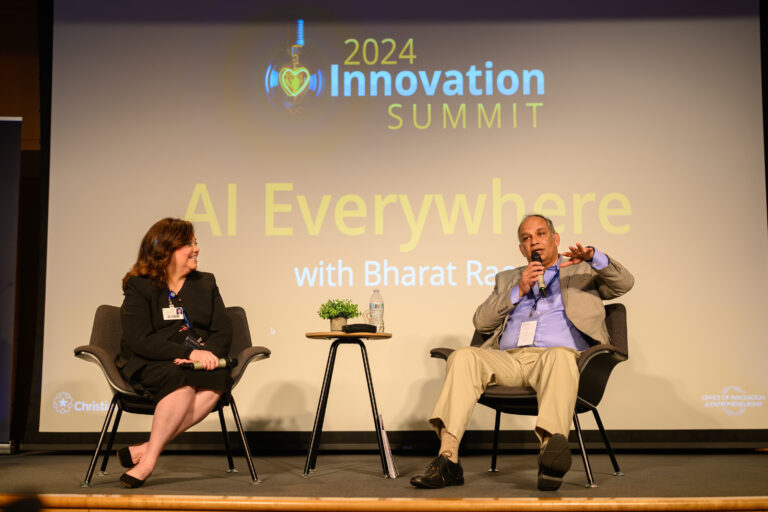AI not only supports healthcare providers but also predicts next actions, detects diseases faster than the human eye, analyzes patterns and patient data that humans might miss, and improves healthcare at every level. Imagine a world where we revolutionize decision-making.
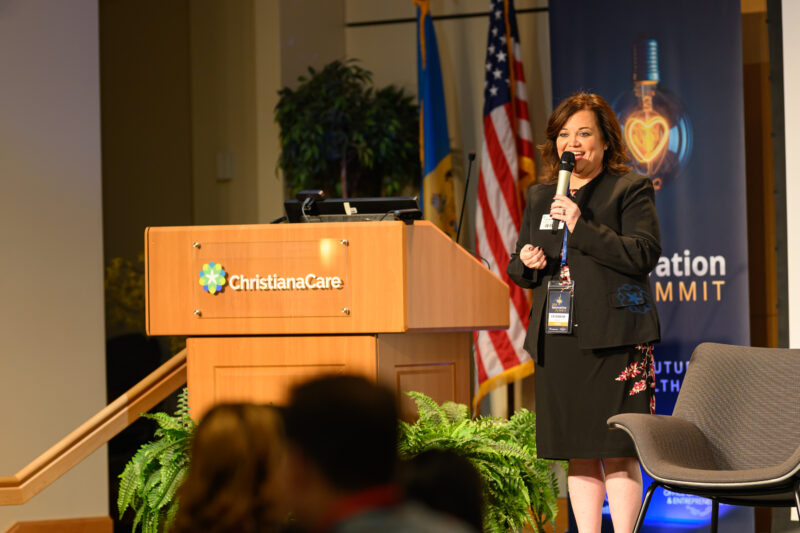
AI uses data to identify which patients are most likely to return to the emergency department repeatedly or thrive with personalized medicine.
With the power of AI-powered robots, people in need of healthcare can become more independent and manage daily tasks like taking medications, monitoring health conditions, and providing personalized care, all from the comfort of their home. .
And this is just the beginning.
“AI is transforming and will continue to transform every industry, especially healthcare,” said Bharat Rao, a prominent healthcare, technology and AI expert.
Mr. Rao himself has made significant contributions to innovations in artificial intelligence, machine learning, and data analytics, particularly in healthcare. His current startup, CareNostics, uses AI technology to identify patients at high risk for chronic diseases.
“We take this for granted,” he said. “But it’s similar to what I used to watch on Star Trek when I was a kid. The opportunities are endless.”
Rao was the keynote speaker at ChristianaCare’s inaugural Innovation Summit, a two-day conference held Oct. 10 and 11 at ChristianaCare’s Newark campus in Delaware. During panel discussions and keynote speeches, more than 200 attendees heard from national innovators and healthcare professionals about current and future health technologies. In addition to thought leaders, we also provide technical advice to inventors who want to patent their ideas and protect their intellectual property in a world where “AI is everywhere,” which is the theme of the conference.
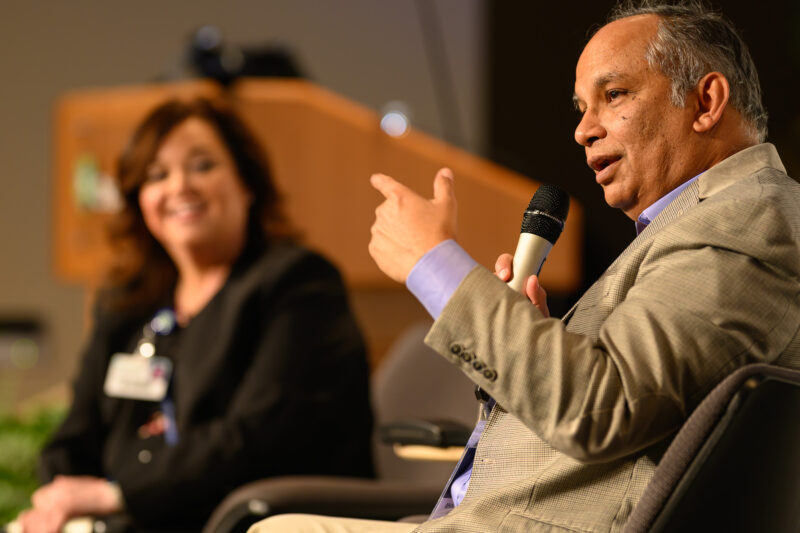
Speakers emphasized that it is not just engineers but also researchers, clinicians, and other healthcare professionals who play an important role in implementing AI-based healthcare solutions. “Without HI, human intelligence, there is no AI,” said Katherine Birch, MS, CXA, CUA, vice president of innovation at ChristianaCare. “I don’t want to wait for the future to shape me, I want to help shape it.”
How AI can help improve patient care
“AI is very good at reducing noise in images,” said speaker David Lloyd, technology leader at Amazon, who described the use of AI in radiology. “It saves radiologist time by being able to detect abnormalities and automating radiologist reports.”
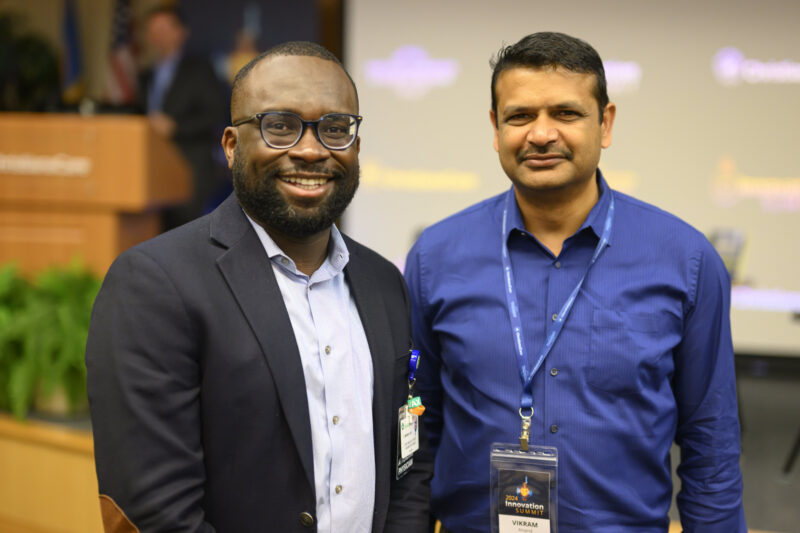
Data informatics is another example of the power of AI to help healthcare professionals determine which patients are at high risk for falls, malnutrition, and recurrence of asthma attacks, optimizing patient health and reducing hospitalization. can be prevented.
“Some people with asthma end up repeatedly visiting the emergency department because their treatment plans aren’t working,” said speaker Vikram Anand, head of data at CareNostics. When patients have uncontrolled asthma, data-rich platforms like CareNostics can provide treating physicians with guidelines and other support to improve patient care, ensuring that evidence-based medication That could lead to changes and other treatments, he said.
Robotics powers AI
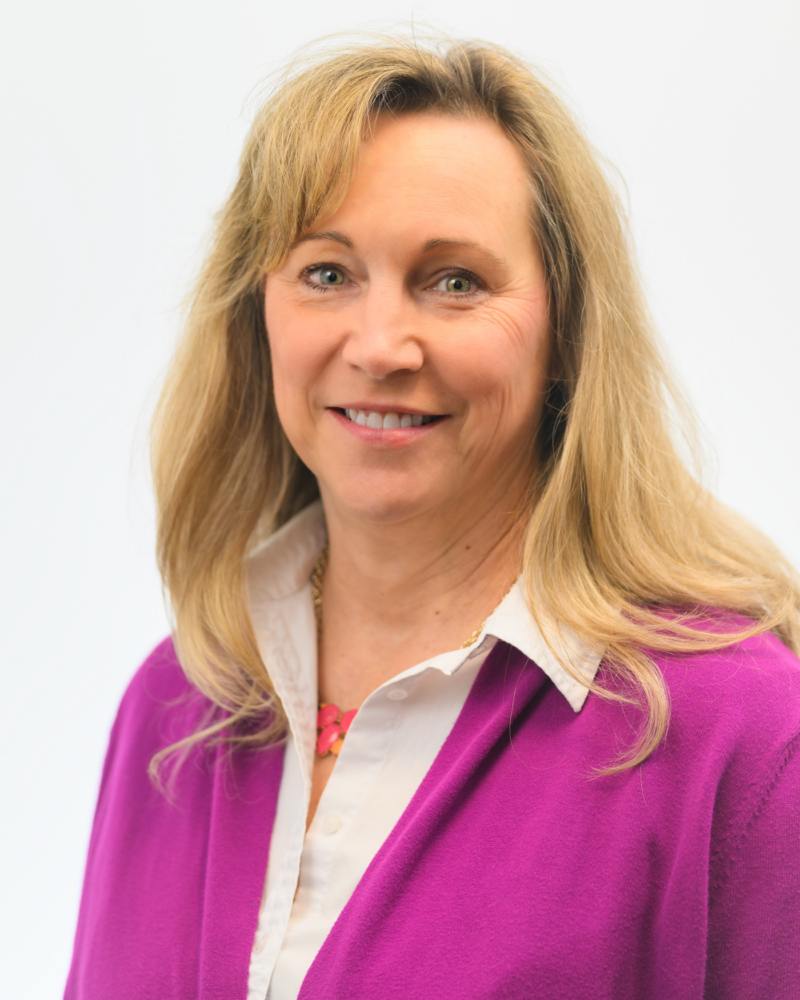
While the idea of using a robot as part of a medical team in a patient’s home may sound like science fiction, speakers discussed the current evolution of consumer robots like Amazon’s Astro. Astro follows patients in their homes, interacts with them, and supports their care. ChristianaCare tested Astro’s impact on HomeHealth patients and found it reduced feelings of isolation by 60%.
“Astro is like Alexa on wheels,” says Christiana Care Director of Home Health Quality, Education, and Risk Management, CPHQ PT, MPT, Speaker, who researched patient experiences with Astro. said Pam Szczerba. “People love interacting with Alexa, but only in the room they are in. Astro’s mobility allows us to get it to the patient.”
Based on early successes, medical professionals are actively evaluating robots as an extension of the clinician in the home. Early results show that patients using the robot have increased activation to their care plan. This could lead to broader distribution of home robots to newly diagnosed patients to prevent disease complications, avoidable emergency department visits, and readmissions.
How AI eases the burden on providers
Speakers also discussed the potential for AI to improve healthcare delivery and patient outcomes by handling more administrative tasks for healthcare professionals.
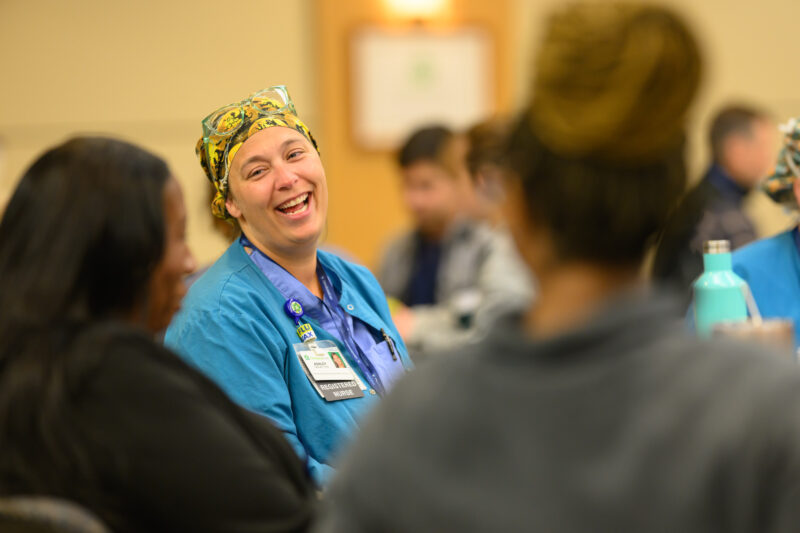
Terrence Bowman, managing director and speaker at Code Differently, a company that educates and prepares people to work in technology-driven workplaces, said, “Cut off some of the redundant work and give people more time to be creative. We can ensure that.”
“AI should take the ‘administrative tasks’ out of your life,” said speaker Nate Gatti, Director of Innovation at Independence Blue Cross. “When you want people to do the creative part of their mental work, let ChatGPT respond to a quick email.” Other examples shared include recording meetings, creating summaries, and more. , which included the power of AI to send automated meeting notes to participants.
The benefits can be seen in every industry. Specific to healthcare, eliminating the need to take notes during a visit allows for more personalized and courteous provider-patient interactions. With the evolution of ambient audio apps, clinicians are no longer just writing notes in electronic medical records. Now, AI listens to conversations and makes notes and relevant recommendations.
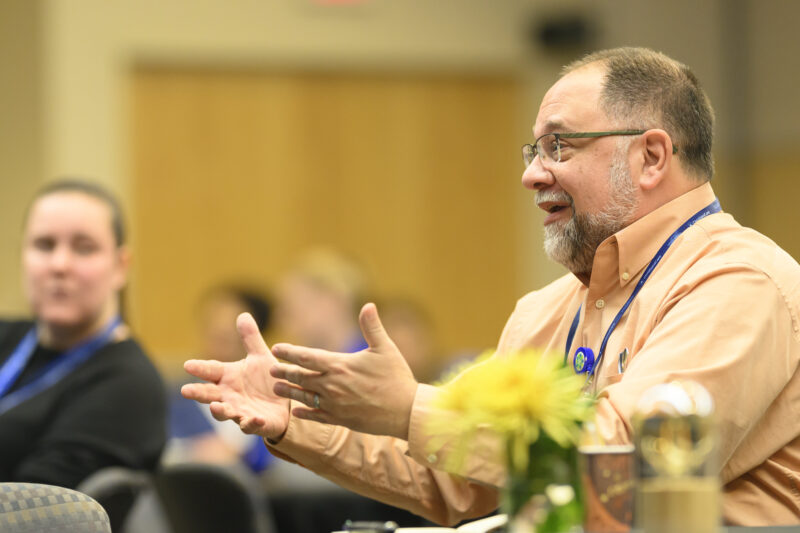
“Physicians are no longer spending their ‘pajama time’ working late nights at home,” said speaker Tyler Flatt. “It’s better for patient and physician satisfaction, especially when you’re dealing with burnout.”
AI could also help diagnose patients with subtle symptoms, revealing details that caregivers were unaware of. “We’re feeding large amounts of data that suggest commonalities about patients,” said speaker Matthew Mauriello, assistant professor of computer and information science at the University of Delaware. “Some of it is very insightful, but humans miss it.”
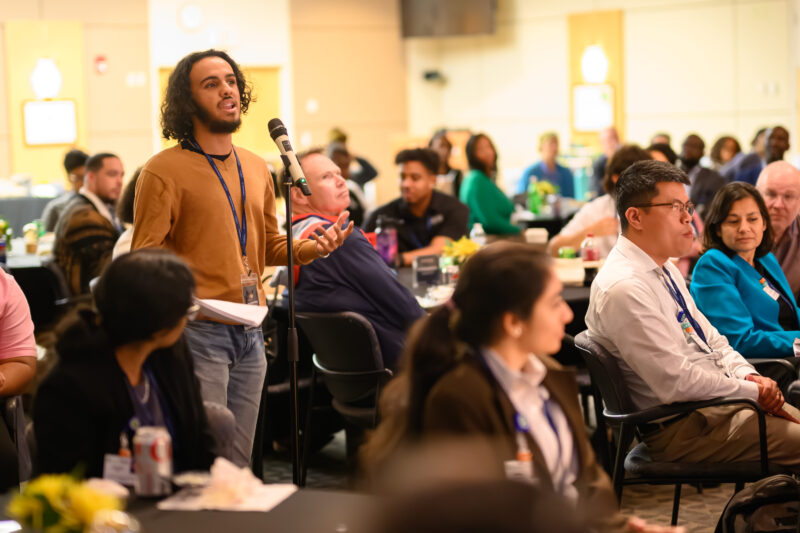
AI is also being used for patient engagement, including chatbots that can assist with tasks such as scheduling clinical appointments and reviewing patient questions. “One of the great things about AI is natural language understanding,” says David Lloyd. “Having something to talk to patients about can take a lot of pressure off, especially when it comes to administrative tasks.”
Creating new health innovations
“The important thing is to think that what you do is original and non-obvious,” said Rao, who has more than 60 patents in the AI field. “The process of writing about it helps flesh it out.”
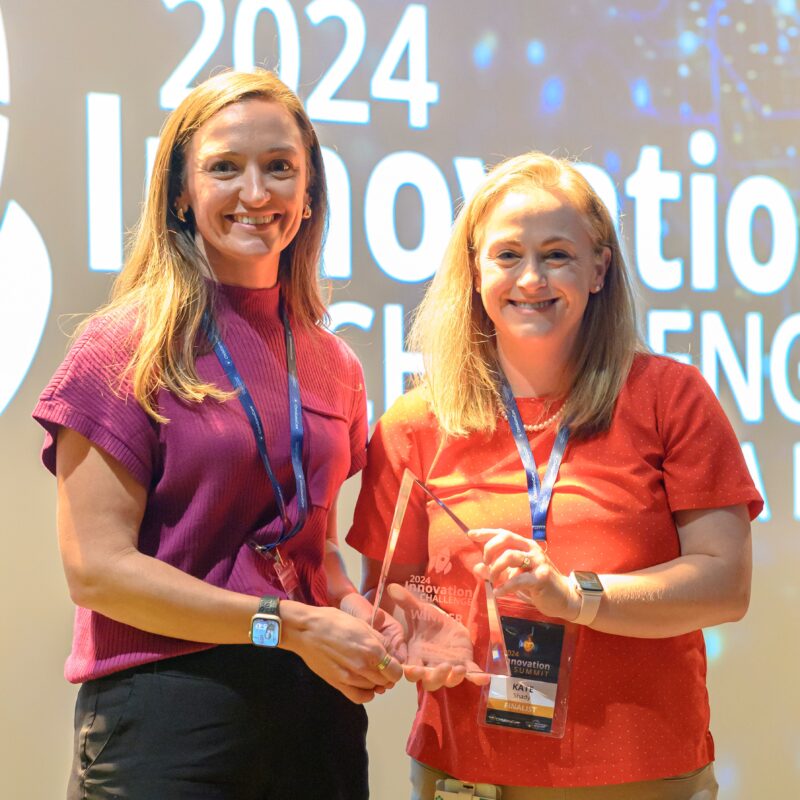
Turning breakthrough ideas into game changers is just the beginning. Protecting these innovations ensures that they shape the future rather than fading into the past.
“It’s important to keep it private and within your organization until you know what you want to do with it,” says Greg Bernabeo, a partner at FisherBroyles, LLP. “Otherwise the opportunity is lost and you can’t put the genie back in the bottle.”
Advantages of non-trivial thinking
Keynote speaker Ben DuPont said that people who pursue “non-obvious” ideas are often at the cutting edge of technology, both within and outside of health care, and said that people with innovative ideas like master’s degrees, MBAs, seniors, etc. He said this while discussing with Randy Gaboreau, vice president and head of digital division. Christiana Care Information Officer.
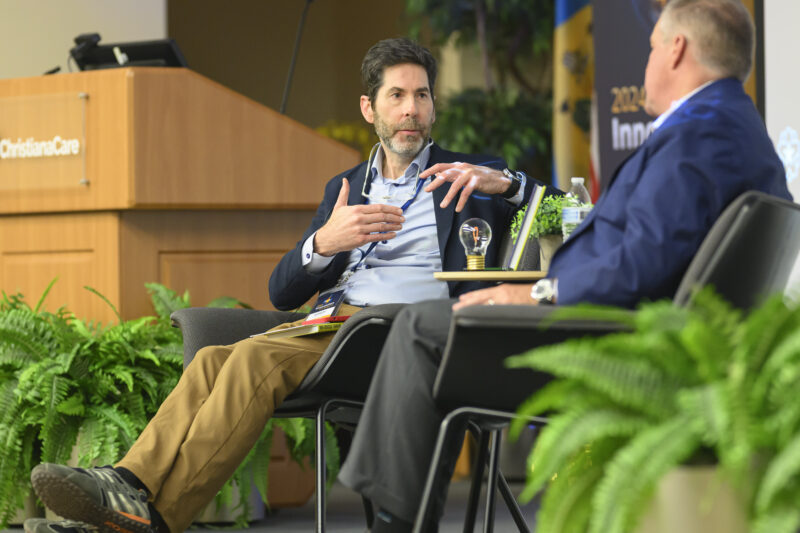
“Amazon wasn’t founded by book retailers. Airbnb wasn’t founded by people in the hospitality industry,” says author, entrepreneur, and co-founder of Chartline Capital Partners venture capital fund. said Mr. DuPont, who is also an executive and partner. “Before Uber, our founders were running around Paris and couldn’t get a taxi.”
Innovative ideas often emerge when people consider non-obvious perspectives when considering solutions, DuPont said. Even non-experts have the ability to cut through the confusion and find frustrations, which can lead to innovative solutions. We explore this in “How to Find Out.” For example, healthcare providers may discover ideas when they step outside their comfort zone.
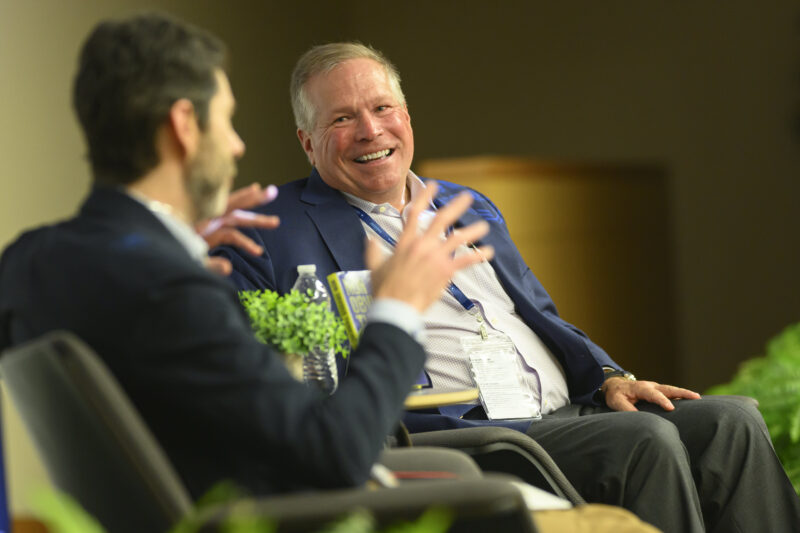
“If you want to be a better doctor, do something that has nothing to do with medicine,” he said. “Innovation occurs when seemingly unrelated fields collide.”
Diversity in the workplace is necessary, DuPont said, “but it’s not just the way people look; it’s the way people think.” “There are people who are dramatic and think differently. We need people around the table who might say, ‘If we move this little thing here… and It will cause an avalanche that will change the world.”
involve future generations
During the Innovation Summit, STEM (science, technology, engineering, and math) students from St. Mark’s High School in Wilmington, Delaware, competed against each other in ChristianaCare’s first-ever HealthSpark ChallengeTM.
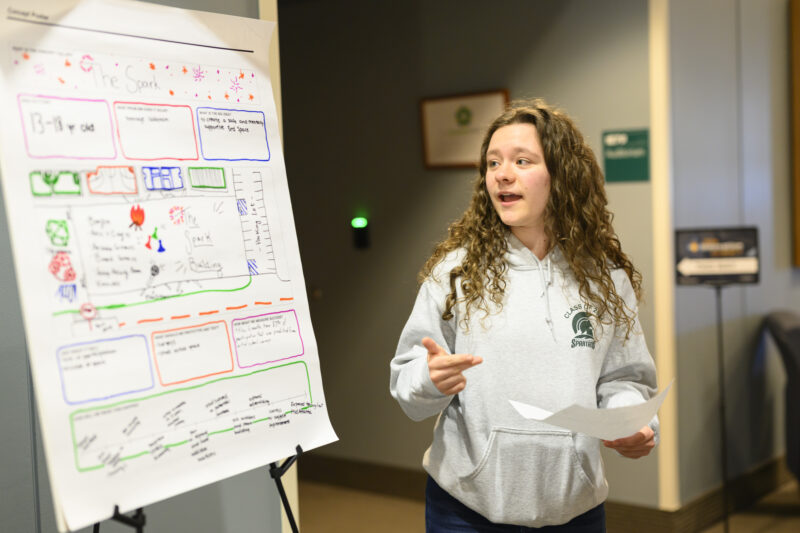
Twenty-six high school juniors and seniors were divided into five teams and challenged to brainstorm ideas for solutions to address the negative mental health effects of social media on teens. Each team created a concept poster and pitched their ideas to the summit participants. Participants then voted for their favorite solution.
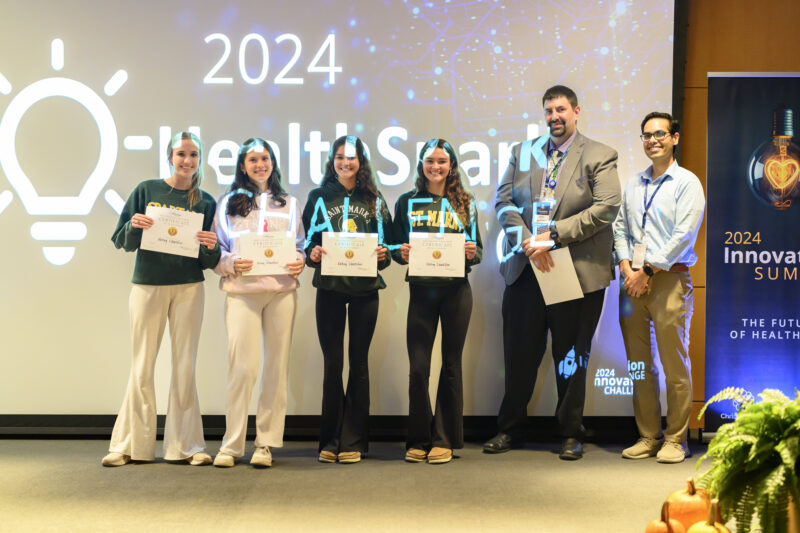
The winning solution, ID Editing, is designed to minimize negative feelings about body image in teens. This solution uses AI technology to identify doctored photos on social media. The goal would be to show teens that pictures of “perfect” people aren’t real, alleviating feelings of body dysmorphia.
I’m looking forward to it
Summit speakers highlighted the many ways AI is already being incorporated into healthcare, as well as the ways health technology, AI, and robotics have the potential to improve patient care in the coming years .
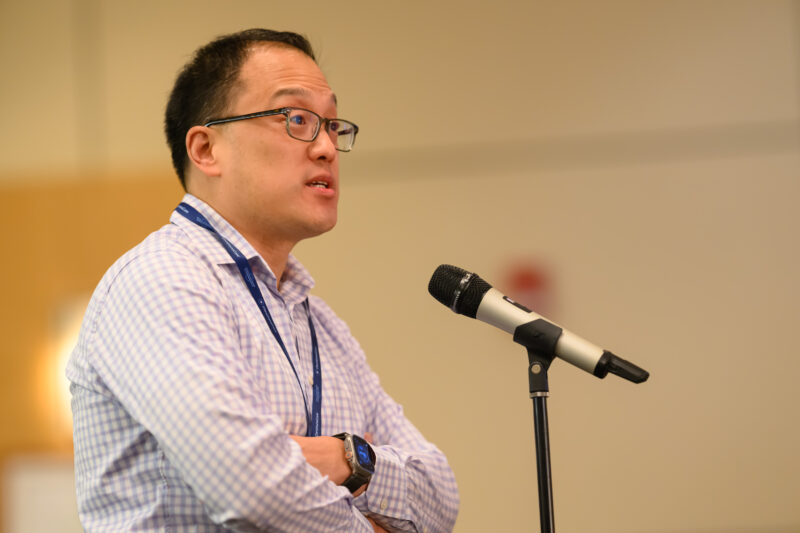
“We’ve just scratched the surface,” Rao said. “It’s like laparoscopic surgery, which years ago was considered experimental or dangerous. Now, surgery is more commonly done laparoscopically, which gives better results. AI can help identify gaps in care and provide the right treatment to the right patients. That’s going to be good for patients.”
In a rapidly evolving landscape, the integration of AI into healthcare not only enhances patient care, but also creates opportunities for innovation and collaboration, said ChristianaCare’s Gaboriaux. “As AI continues to evolve, the healthcare industry is on the brink of a revolution, and the possibilities are as vast as the data driving it.”

